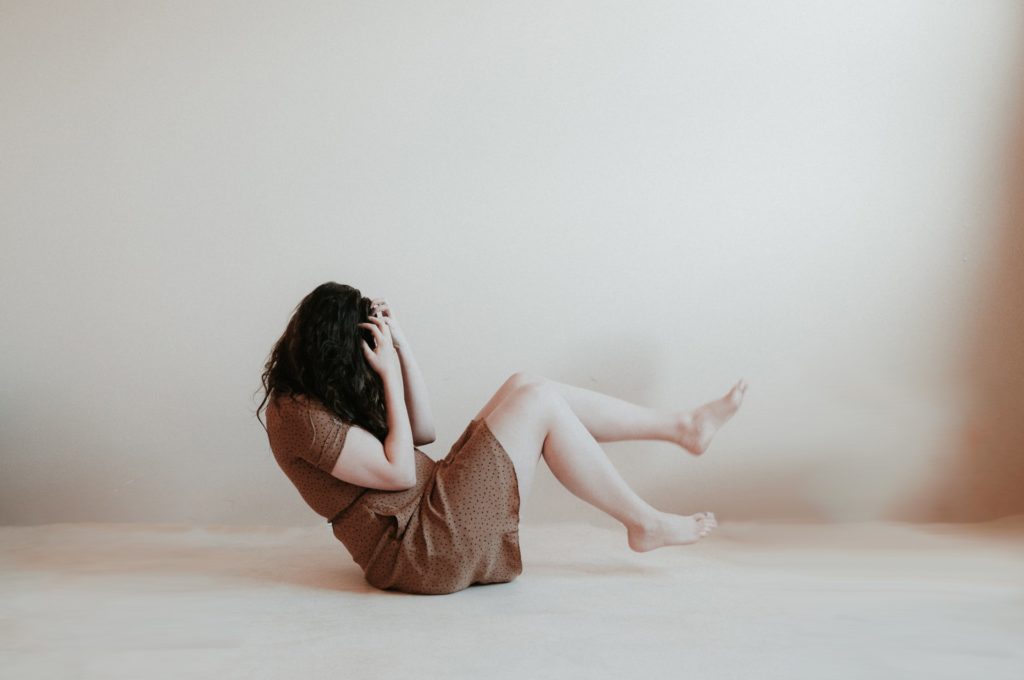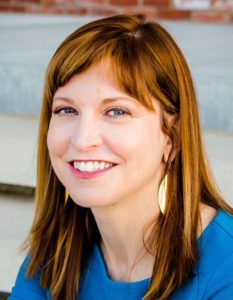Mother’s Day Magazine talks with author Jody Keisner about Under My Bed and Other Essays, a memoir about motherhood, adoption, and the struggle to keep the things we fear from reaching out and pulling us under. Her book comes out on September 1, 2022 and is available for pre-order from The Bookworm, University of Nebraska Press, Amazon, and wherever books are sold. You can find Jody on Twitter @JodyKeisner and read her work at www.jodykeisner.com.
How did this book come about?
When I was first living alone after college, I had an irrational fear of intruders that resulted in me running around my apartment, whipping open closet doors, and double-checking locks. I’ve since learned that many women engage in similar behavior when they are alone at night and for a variety of reasons. One reason: we grow up in a society where the threat of violence against girls and women is common. My nighttime fear mostly disappeared after I was married—I always had company! But one evening my daughter caught me on my hands and knees looking under my bed. I didn’t want to model this bizarre behavior for her.
Stopping my under-the-bed-checking turned out to be the easier part. Overcoming the fear proved more difficult because I needed to understand its origins first, so I turned to writing and, to a lesser extent, research. From there, one chapter grew into another chapter and into a deep curiosity about all my greatest fears and the fears of other women and mothers. Ultimately, I wanted to write a book that connected with readers as they reckoned with their own fears. Confronting our fears is empowering!
Do you think fear-based parenting protects children or prevents them from experiencing life fully?
From what I’ve read, fear-based parenting has a lot to do with parents making choices from a place of anxiety or because of their fear of judgment from others. I’m not a fear-based parent per se. I wouldn’t worry about what others thought if I, for instance, allowed my oldest daughter to color her hair purple (which she’s already done). I’m not concerned with what others think about my parenting choices. I am, however, a worrier when it comes to my children’s well-being. Thus, if my oldest daughter, who is 11, is going to sleepover at a friend’s home (my youngest is only 5), I need to know the friend’s parents and trust them. My oldest daughter is allowed to walk to school with a friend, as opposed to walking alone. I am a tad vigilant about safety, especially when it comes to raising girls, who statistically speaking, the world is much less kind to.
Healthy fear is important, but so is teaching our children how to self-assuredly navigate the outside world without relying on a parent or caregiver hovering nearby. In the book, I illustrate how fear has shaped my parenting in certain circumstances—and especially when I was a new mother and overcome with postpartum blues—but I’ve also learned to let go. It’s been a lot easier for me with the second child.
How has becoming a mother helped you face your fears?
Motherhood shifted the focus from me and my personal fears to the business and busyness of raising a child. Yet, motherhood has also brought up new fears. Will I be able to successfully shepherd my daughters into adulthood and into the wild country of wild grownups? So far, so good! Mothering my children has given me a renewed strength and fierceness—the whole “mama bear” vibe.
For moms with young kids, danger can seem to be lurking everywhere—from choking hazards to drowning. What advice do you have for moms who feel burned out from being constantly vigilant?
No one understands the overwhelming responsibilities of being a woman and mother in our society better than other women and mothers. It’s important to acknowledge the enormity of the job. Motherhood is not for the faint of heart. Neither is living in a female body. One of the most important things a new mother can do—and even a seasoned mother—is to surround herself with other mothers and women who are supportive. Find your people. A certain amount of vigilance is normal; there are science-based reasons for why mothers, for instance, scan new environments for threats. There also may be cases where a therapist may be helpful, like when the vigilance is overshadowing the joy of motherhood. If you have a partner, turn the worry and caretaking over to them for a while in an intentional way. Get enough sleep. Go out with your friends. Your child will still be alive when you get home! In the early months and years of parenting, I had to remind myself of this often.

There’s still a lot of stigma around talking about maternal mental health. What did it feel like to write about your fears so openly?
I’ve had a general anxiety disorder for most of my adult life, which was pretty intense after I became a mother. (I think most of us struggle with some sort of anxiety or another.) I learned that anatomical and physiological changes that occur during pregnancy contribute to hypervigilant behavior, such as checking a sleeping newborn dozens of times throughout the night to make sure they are still breathing. Our brains are wired for detecting danger! A certain amount of vigilance is to be expected.
I worried I looked “weak” when I exposed my vulnerabilities in my book, but that’s nonsense that I’ve been socialized to believe. It’s brave to look one’s fears dead in the eyes. I’ve also learned my fears aren’t all that unique! It’s crucial for us to have these frank discussions about maternal mental health so others know they aren’t alone. And can we please stop expecting mothers to be superhuman? We aren’t, and we have real mental health challenges like everyone else.
What techniques have you found to be helpful in calming your fears?
When I write I’m in my head, indulging in my fear and seeing where it leads. In a real-life moment of fear, it’s important for me to name the fear and then really ground myself in the moment and get out of my head. Being present is sometimes a lot less scary than being in my imagination! I look at what’s around me and what is real and true. I also practice deep breathing and I take long walks. I tap into my rational brain instead of my emotional brain.
Some of my mother-fears are more difficult to calm, like my fear of school shootings. In this case, I find that taking action calms me. Maybe that means writing to my state representatives. Perhaps it means writing rage-y posts about gun control on Facebook or joining a march. Or maybe it means writing a new book!

Articles are for informational and self-help purposes only. Articles are not meant to provide specific advice for your specific situation. They should not be treated as a substitute for psychological, behavioral health, medical, financial, relationship, or career advice or as a substitute for consultation with a qualified professional. Nothing in any Article is intended as a recommendation or endorsement of any products, services, healthcare provider, opinions or other information.
The opinions expressed by the author and those providing comments are theirs alone and do not reflect the opinions of Mother’s Day Magazine. Mother’s Day Magazine is not responsible for the accuracy of the information supplied by the author. The Terms and Conditions are incorporated herein.

